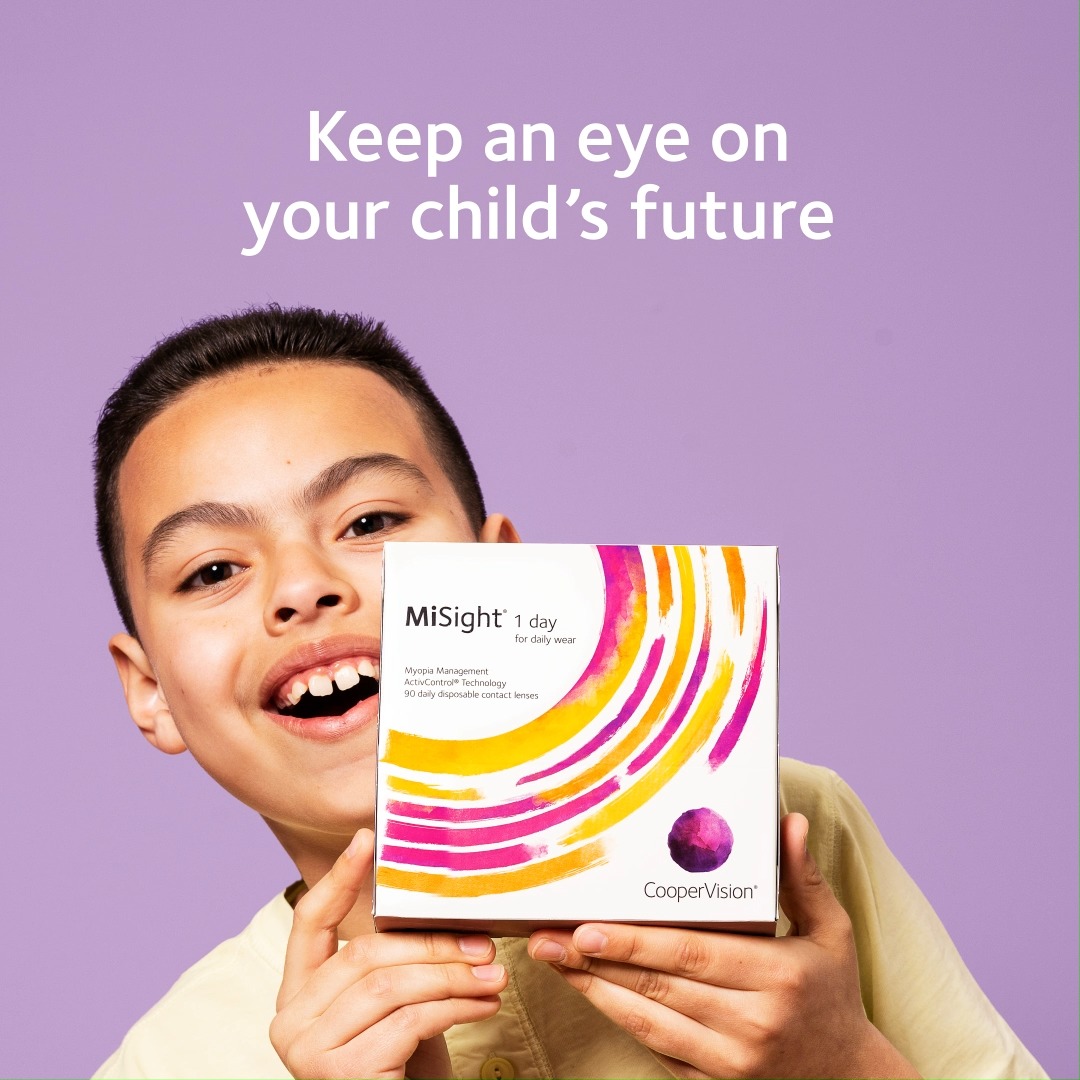nearsightedness
Myopia Management

nearsightedness
Myopia Management
Myopia, also known as nearsightedness, is a common vision condition in which a person can see objects clearly up close, but objects in the distance appear blurry. It occurs when the eyeball is too long, or the cornea has too much curvature. This causes light rays to focus in front of the retina instead of directly on it. The higher the myopia, the greater the physical elongation of the eye.
- Low myopia: -0.50 to -3.00
- Moderate myopia: -3.00 to -5.00
- High myopia: -5.00 and above
- Extreme myopia is sometimes used to describe myopia more than -10.00
Myopia usually begins during childhood and can progress as people get older unless it is treated with corrective lenses or other methods of myopia management. It is associated with an increase in vision-threatening eye diseases such as retinal detachments, cataracts, glaucoma, and myopic macular degeneration later in life.
What are the symptoms of myopia?
- Blurry vision when looking at far away objects.
- The need to squint to see objects clearly.
- Eyestrain.
- Experiencing headaches caused by straining your eyes.
Myopia can affect children in their daily life including academic performance, sporting activities, social interactions, independence, and self-esteem. The doctors at SIGHT diagnose and treat myopia in children and adults. They also have expertise in working with children who have progressive myopia.
What are the treatment options for myopia?
If you or your child has been diagnosed with myopia by an eye care professional, we offer treatment options to help slow its progression. These include:

Prescription eye drops
Prescription eye drops, particularly low-dose atropine, have shown promising results in slowing myopia progression in children. Atropine eye drops work by relaxing the eye’s focusing mechanism and may help to reduce the elongation of the eyeball associated with myopia progression.

Orthokeratology
Orthokeratology (or ortho-k) is a non-surgical procedure that temporarily reshapes the cornea using specially designed contact lenses worn overnight. These rigid gas permeable lenses gently flatten the center of the cornea, changing how light is focused on the retina. In the morning, the lenses are removed, and the patient can see clearly without needing glasses or contact lenses during the day.

MiSight® contact lenses
MiSight® 1 day contact lenses are the first and only FDA-approved soft contact lenses specifically designed to slow myopia progression in children aged 8-12 at the start of treatment. These daily disposable lenses use innovative ActivControl® Technology to create multiple focus points, which helps reduce the eye’s tendency to elongate—a leading factor in myopia progression. MiSight® lenses have been clinically proven to slow myopia progression by up to 59% on average. In addition to being convenient and easy to use for children, these lenses address myopia early to reduce the risk of serious eye health issues in the future.
Managing myopia
Managing myopia with an eye doctor is crucial, as they can provide personalized recommendations and monitoring of the condition. If you or your child is experiencing symptoms of myopia or have a family history of the condition, we encourage you to visit our eye care professionals in Farmington or West Hartford for a comprehensive eye exam. Our optometrists will perform various tests to determine overall eye health and screen for myopia. If myopia is discovered, our doctor will develop a treatment plan to correct it and prevent further progression. Contact us today to schedule your appointment!
